
The Jewel of the Caribbean: Palm Beach, Aruba
Palm Beach is a tropical paradise located on the western coast of Aruba. This stunning destination is known for its pristine white sandy beaches and crystal-clear turquoise waters. As one of the most popular spots on the island, it offers a perfect blend of relaxation and adventure. Whether you are looking to soak up the sun, engage in thrilling water sports, or explore the local culture, Palm Beach has something for everyone. Strolling along the shoreline, visitors will find an array of luxurious hotels, vibrant beach bars, and exquisite restaurants. The palm-lined beach is perfect for a leisurely swim or a scenic walk. For those who enjoy shopping, the nearby Palm Beach Plaza and Paseo Herencia Mall offer a variety of boutiques and souvenir shops. Beyond the beach, Palm Beach is a gateway to numerous activities. Visitors can enjoy snorkeling, scuba diving, and sailing in the calm Caribbean waters. Inland, the Bubali Bird Sanctuary offers a chance to see exotic birds in their natural habitat. The area also boasts a lively nightlife, with casinos, nightclubs, and live music venues ensuring the fun continues after the sun sets.
Local tips in Palm Beach
- Visit during the off-peak season (April to August) to enjoy fewer crowds and better hotel rates.
- Don't miss the sunset – it's breathtaking and offers fantastic photo opportunities.
- Try the local cuisine at seaside restaurants. Fresh seafood and Caribbean flavors are a must.
- Rent a bicycle to explore the area easily and enjoy the scenic views.
- Bring reef-safe sunscreen to protect the marine life while you enjoy water activities.
- Stay hydrated and wear light clothing to stay comfortable in the tropical climate.
The Jewel of the Caribbean: Palm Beach, Aruba
Palm Beach is a tropical paradise located on the western coast of Aruba. This stunning destination is known for its pristine white sandy beaches and crystal-clear turquoise waters. As one of the most popular spots on the island, it offers a perfect blend of relaxation and adventure. Whether you are looking to soak up the sun, engage in thrilling water sports, or explore the local culture, Palm Beach has something for everyone. Strolling along the shoreline, visitors will find an array of luxurious hotels, vibrant beach bars, and exquisite restaurants. The palm-lined beach is perfect for a leisurely swim or a scenic walk. For those who enjoy shopping, the nearby Palm Beach Plaza and Paseo Herencia Mall offer a variety of boutiques and souvenir shops. Beyond the beach, Palm Beach is a gateway to numerous activities. Visitors can enjoy snorkeling, scuba diving, and sailing in the calm Caribbean waters. Inland, the Bubali Bird Sanctuary offers a chance to see exotic birds in their natural habitat. The area also boasts a lively nightlife, with casinos, nightclubs, and live music venues ensuring the fun continues after the sun sets.
When is the best time to go to Palm Beach?
Iconic landmarks you can’t miss
California Lighthouse
Explore the California Lighthouse in Aruba, an iconic historical landmark offering breathtaking views and a glimpse into the island's maritime heritage.
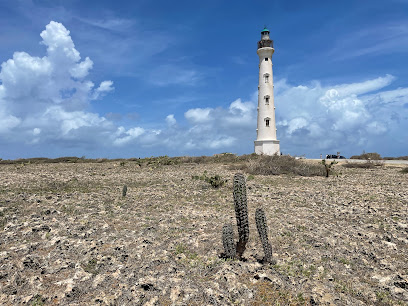
Natural Bridge Aruba
Discover the stunning Natural Bridge Aruba, a breathtaking geological wonder and historical landmark, perfect for nature lovers and adventure seekers alike.
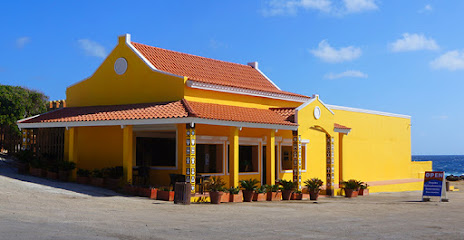
Baby Beach
Discover the tranquil beauty of Baby Beach in Aruba, a perfect destination for relaxation, swimming, and stunning sunsets.
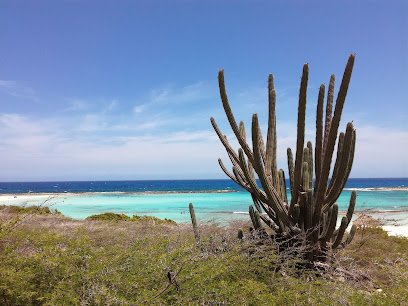
Palm Beach Plaza Mall
Discover shopping, dining, and entertainment at Palm Beach Plaza Mall, your ultimate destination for a vibrant Aruban experience.
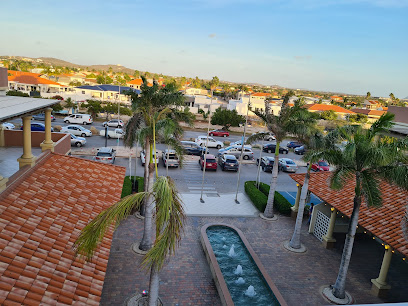
De Palm Island
Discover De Palm Island, Aruba's premier water park and tropical escape, where adventure meets relaxation in a stunning island setting.
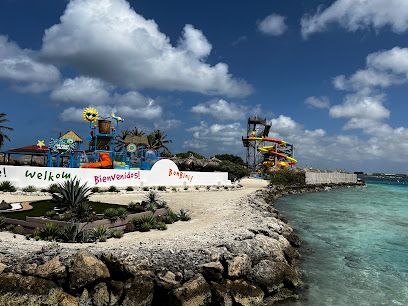
Arikok National Park
Explore Aruba's Arikok National Park, a stunning natural paradise featuring diverse landscapes, unique wildlife, and rich cultural heritage.
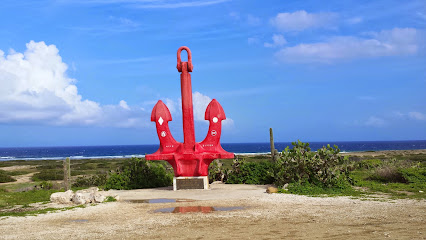
Butterfly Farm
Discover a tropical paradise where hundreds of exotic butterflies flutter freely. A serene and colorful escape for nature lovers in Aruba.
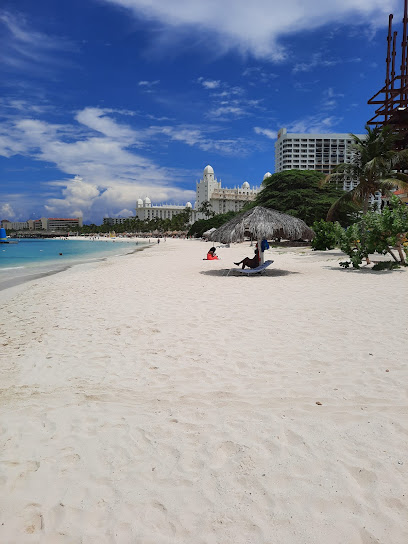
De Palm Tours Aruba
Discover the stunning beauty of Aruba with De Palm Tours, your premier tour agency for unforgettable island adventures and experiences.
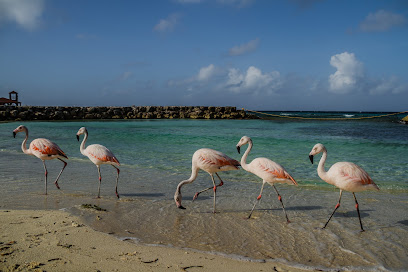
Alto Vista Chapel
Discover tranquility at Alto Vista Chapel, Aruba's serene sanctuary offering breathtaking views and a rich cultural experience.

Bushiribana Ruins
Uncover the rich history of Aruba at the Bushiribana Ruins, a stunning landmark offering breathtaking views and a glimpse into the island's gold rush era.
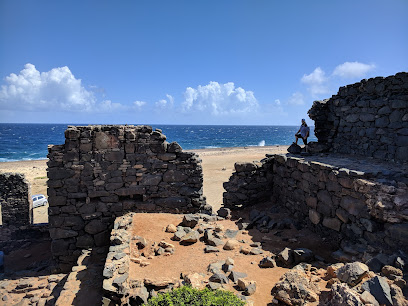
Philip's Animal Garden
Explore Philip's Animal Garden in Aruba, a captivating wildlife sanctuary dedicated to animal rescue and a fun-filled family adventure.
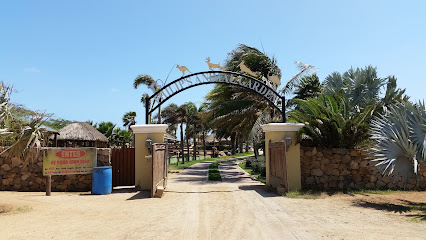
Bushiribana Gold Smelter
Discover the historic Bushiribana Gold Smelter in Aruba, an iconic site that showcases the island's gold mining history with breathtaking coastal views.
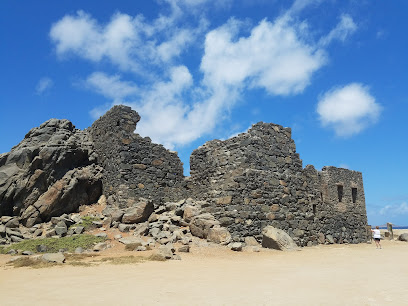
Ayo Rock Formations
Explore the enchanting Ayo Rock Formations in Aruba, where stunning landscapes and rich cultural history collide in breathtaking natural beauty.
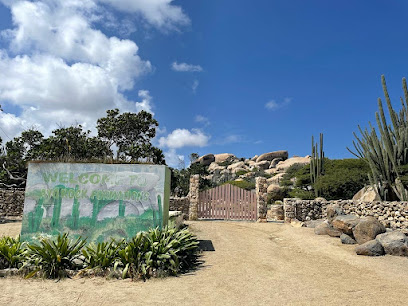
Fontein Cave
Explore the enchanting Fontein Cave in Aruba’s Arikok National Park, where nature meets history in stunning geological formations.
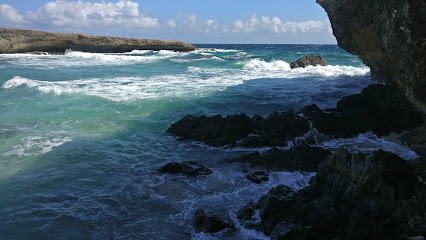
De Palm Pier
Experience the vibrant culture and stunning views at De Palm Pier, Aruba's ultimate destination for food, fun, and adventure.
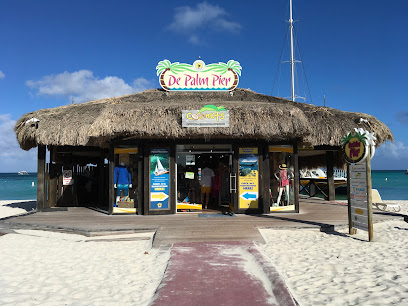
Unmissable attractions to see
Natural Bridge Aruba
Visit the remains of Aruba's famous Natural Bridge and witness the beauty of the island's rugged coastline and the charming Baby Bridge.
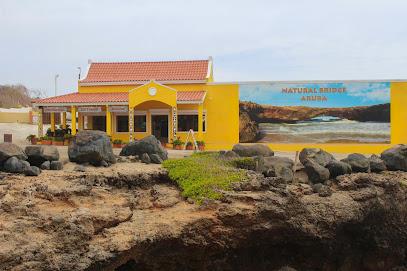
Eagle Beach
Experience the stunning beauty of Eagle Beach in Aruba, where soft sands meet crystal-clear waters, perfect for relaxation and adventure.
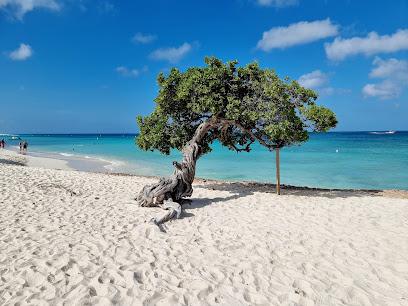
Casibari Rock Formations
Explore Aruba's mysterious Casibari Rock Formations: panoramic views, ancient history, and natural beauty await!
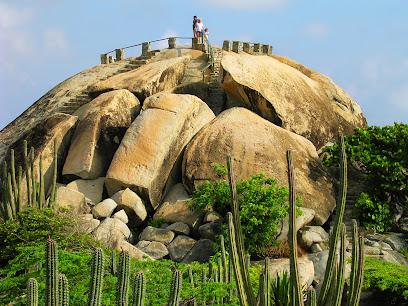
Arikok National Park
Discover Aruba's wild side: Explore ancient caves, rugged landscapes, and unique wildlife in Arikok National Park. A natural and cultural treasure.
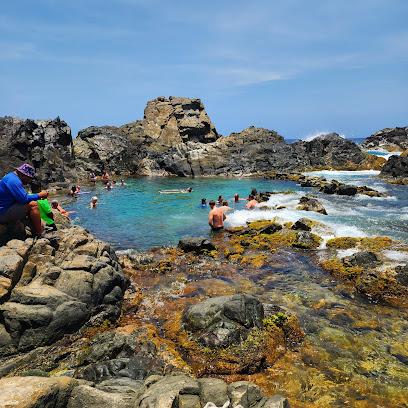
De Palm Island
Discover Aruba's all-inclusive coral island: snorkeling, water park, flamingos, and endless fun for the whole family!
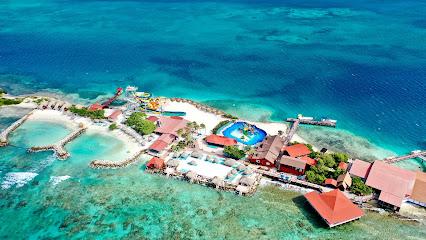
Aruba Aloe Factory Museum and Store
Explore Aruba's rich aloe heritage at the Aloe Factory Museum and Store, where history meets nature in an unforgettable experience.
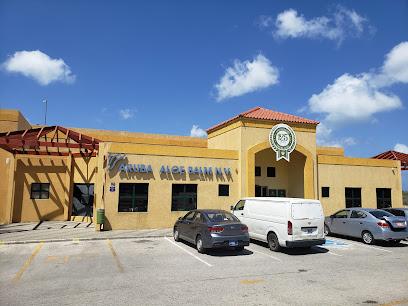
The Butterfly Farm Aruba
Discover a tropical oasis where hundreds of exotic butterflies flutter in a serene garden. An enchanting and educational experience for all ages.
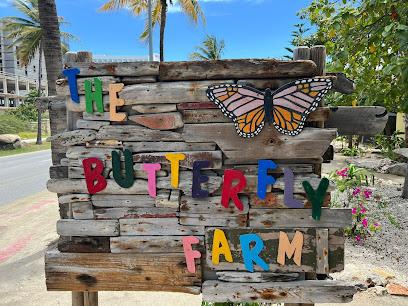
Alto Vista Chapel
Experience tranquility and breathtaking views at Alto Vista Chapel, a historical landmark in Noord, Aruba, perfect for spiritual reflection and cultural exploration.
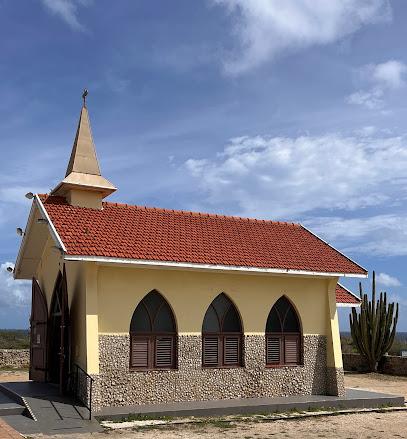
Baby Beach
Explore the tranquil waters and stunning landscapes of Baby Beach in San Nicolas, Aruba – a tropical paradise perfect for relaxation and adventure.
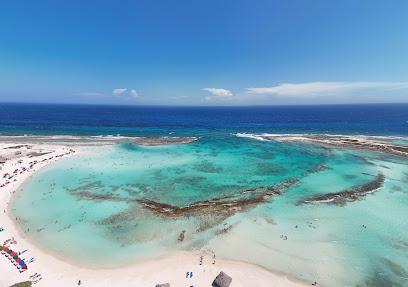
Conchi Natural Pool
Discover Aruba's hidden gem: Conchi Natural Pool, a secluded oasis of turquoise waters and rugged beauty within Arikok National Park.
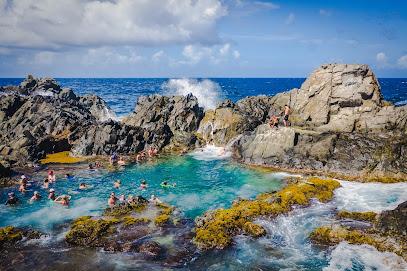
Philip's Animal Garden
Interact with rescued animals from around the world at this unique Aruban sanctuary and rehabilitation center.
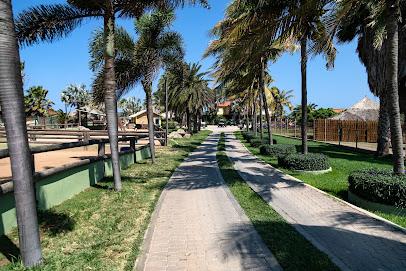
Donkey Sanctuary Aruba
Visit the Donkey Sanctuary Aruba to connect with rescued donkeys, learn about Aruban history, and support animal welfare.
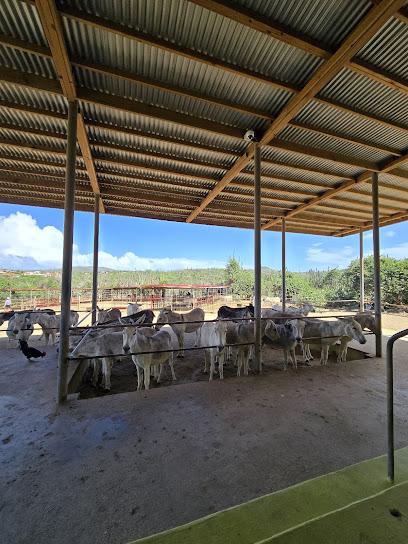
Arashi Beach
Discover Arashi Beach: A serene Aruba escape with calm waters, stunning sunsets, and fantastic snorkeling for all skill levels.
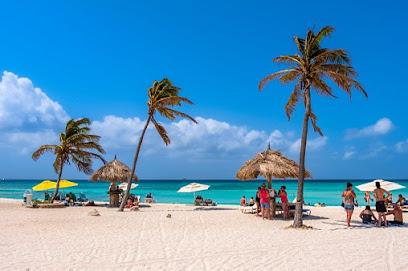
Jolly Pirates Sailing Cruises & Snorkeling
Set sail for snorkeling adventures & sunset cruises on Aruba's famous pirate ships. Snorkel, swim, swing & savor the Caribbean!
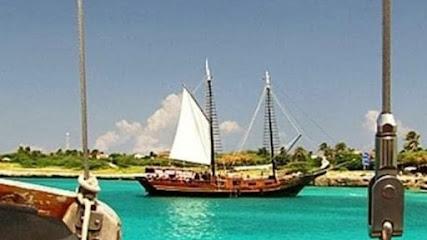
Atlantis Submarines Aruba
Explore Aruba's underwater world in a real submarine. Discover vibrant marine life and shipwrecks 130 feet below the surface!
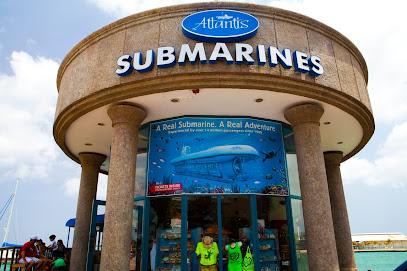
Essential places to dine
Giannis Restaurant Aruba
Experience authentic Italian flavors at Giannis Restaurant Aruba - where exquisite cuisine meets tropical charm.
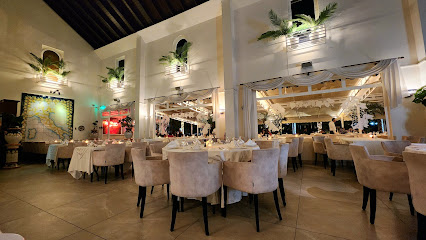
MooMba Beach Bar & Restaurant
Experience the vibrant flavors of Aruba at MooMba Beach Bar & Restaurant – where beachside dining meets island hospitality.
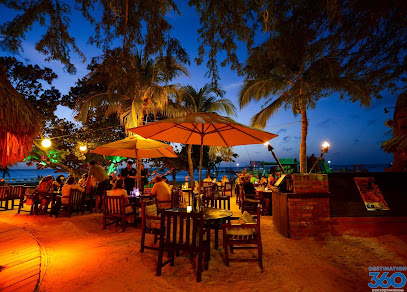
Passions On The Beach
Experience fine dining at Passions On The Beach in Aruba—where fresh seafood meets stunning ocean views for an unforgettable culinary journey.
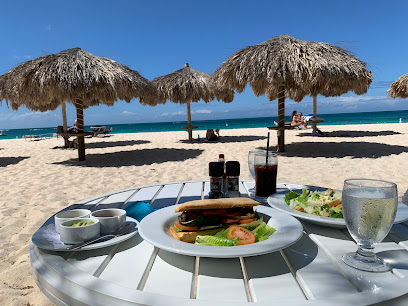
Salt and Pepper Tapas Bar & Restaurant
Discover the unique blend of Aruban flavors at Salt and Pepper Tapas Bar & Restaurant – a top destination for delicious tapas and vibrant dining.
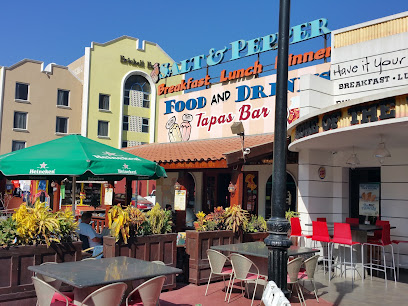
Smokey Joe's Island Grill
Discover Smokey Joe's Island Grill - Aruba's premier destination for authentic barbecue flavors in a vibrant island setting.
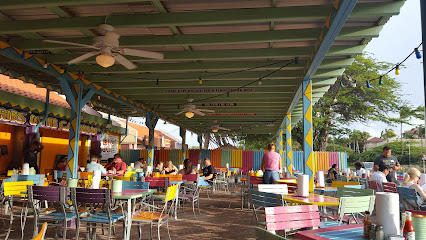
Lola Taqueria
Experience vibrant flavors at Lola Taqueria in Noord, Aruba – your go-to spot for authentic Mexican cuisine!
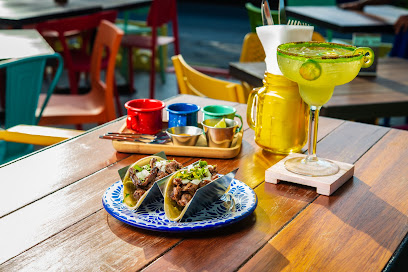
Wacky Wahoo's
Discover the vibrant flavors at Wacky Wahoo's in Aruba - where fresh seafood meets Argentinian charm for an unforgettable dining experience.
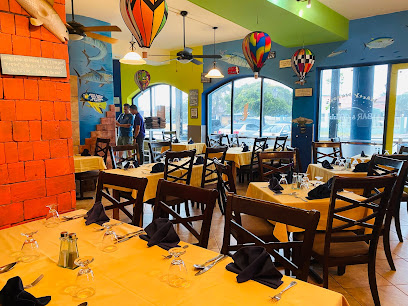
Amore Mio Pizzeria Napoletana
Experience authentic Neapolitan pizza at Amore Mio Pizzeria Napoletana in Aruba - where flavor meets tradition in every slice.
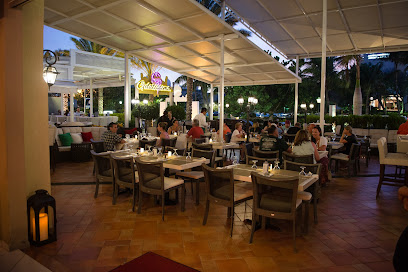
The Old Cunucu House Aruba
Discover authentic Caribbean flavors at The Old Cunucu House in Aruba – a must-visit destination for food lovers.
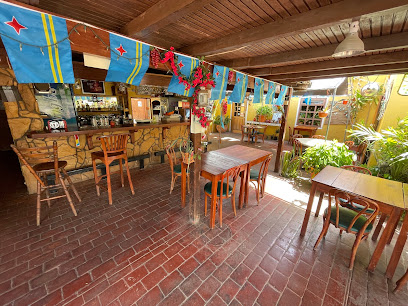
Azia Restaurant & Lounge
Discover Azia Restaurant & Lounge: A Culinary Oasis in Aruba Offering Exquisite Asian Cuisine with Vegan Options.
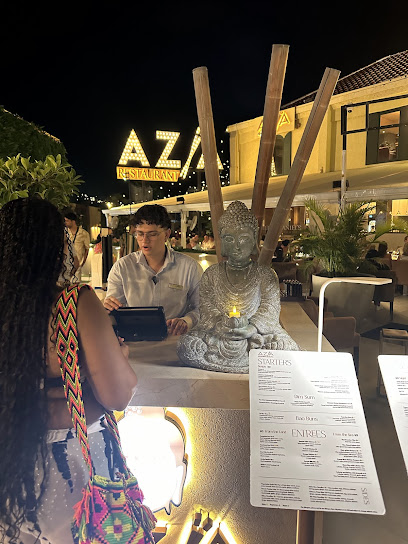
Azzurro Ristorante Italiano Aruba
Experience authentic Italian cuisine at Azzurro Ristorante Italiano in Aruba's Playa Linda Beach Resort with stunning ocean views.
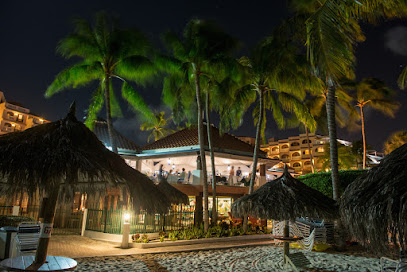
Hostaria da Vittorio
Delight your senses with authentic Italian flavors at Hostaria da Vittorio in Noord, Aruba - where every meal is a celebration of culinary excellence.
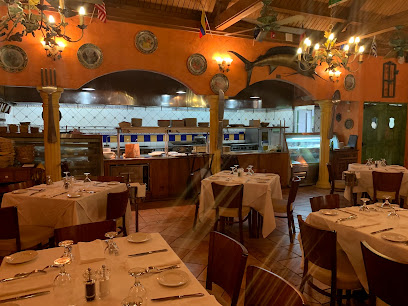
Daniel's Steak and Chop
Discover culinary excellence at Daniel's Steak and Chop in Noord, Aruba - where every bite is a celebration of flavor.
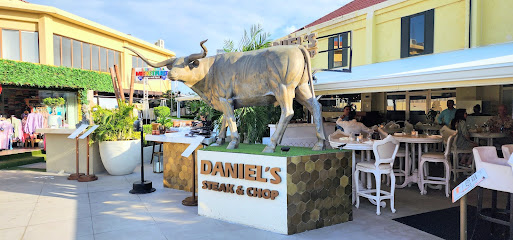
Bohemian Bar & Restaurant
Discover culinary excellence at Bohemian Bar & Restaurant in Noord, Aruba – where French flair meets Mediterranean delight in a vibrant setting.
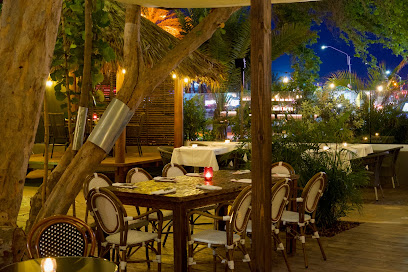
Así Es Mi Peru
Discover authentic Peruvian cuisine at Así Es Mi Peru in Oranjestad, Aruba - where tradition meets taste in every dish.
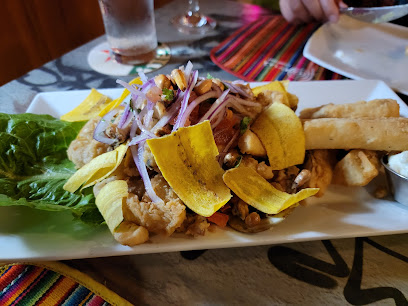
Markets, malls and hidden boutiques
Palm Beach Plaza Mall
Discover a shopper's paradise at Palm Beach Plaza Mall, where luxury meets local charm in Aruba's bustling retail haven.
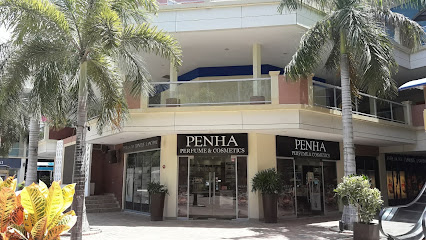
Paseo Herencia Mall
Explore shopping, dining, and entertainment at Paseo Herencia Mall, the ultimate destination for tourists in Aruba.
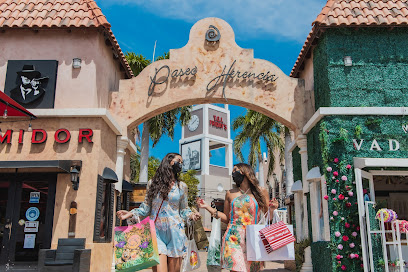
I Love Aruba Store II
Explore the vibrant I Love Aruba Store II for unique souvenirs and exquisite jewelry to cherish your Aruban adventure.
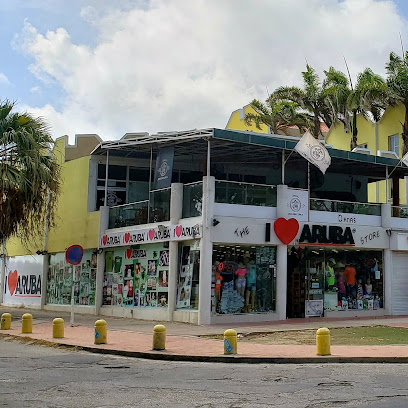
Kristie's Jewels
Discover exquisite jewelry at Kristie's Jewels in Noord, Aruba - a must-visit for every traveler seeking a touch of elegance.
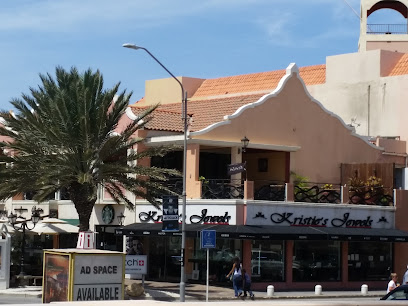
The Juggling Fish
Explore The Juggling Fish for stylish beachwear and unique gifts in the heart of Noord, Aruba, and immerse yourself in island culture.
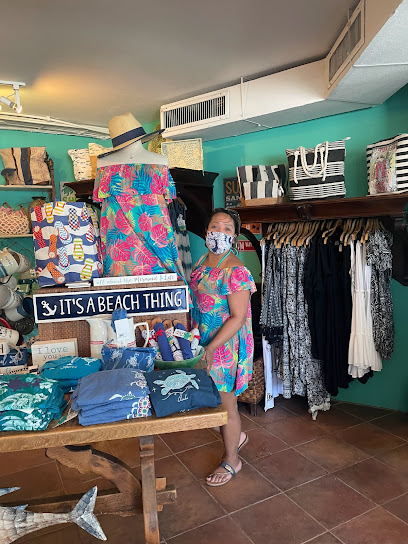
The Village Mall Aruba
Discover an enchanting shopping experience at The Village Mall Aruba, where unique boutiques meet delightful dining options in a vibrant atmosphere.
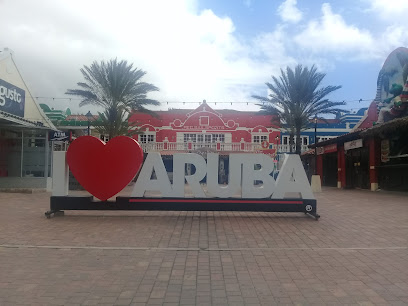
The Cove Mall
Discover a shopper's paradise at The Cove Mall in Aruba, where unique boutiques and delightful dining options await your visit.

T.H. Palm & Company
Explore T.H. Palm & Company in Aruba for trendy souvenirs, stylish clothing, and unique gifts that capture the essence of island life.
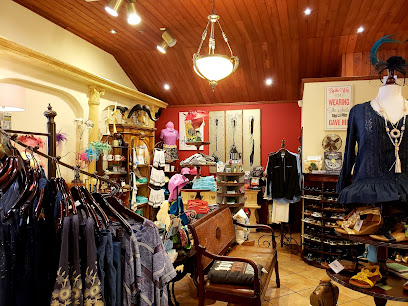
Flamingo Souvenir Store
Discover unique Aruban gifts and souvenirs at the Flamingo Souvenir Store, a vibrant shopping destination in Noord, Aruba.
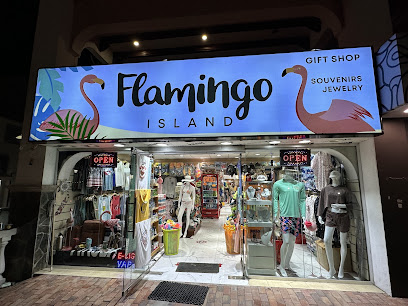
Coconuts Aruba
Explore Coconuts Aruba for unique souvenirs and local crafts that capture the spirit of the island, just waiting to be taken home.
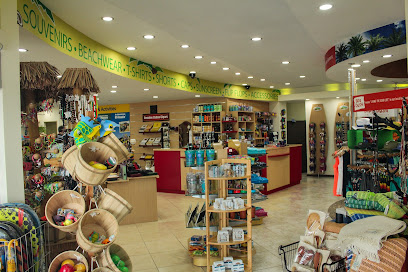
The Mask Aruba - The mopa mopa experience
Explore the enchanting Mopa Mopa masks at The Mask Aruba, a treasure trove of indigenous artistry and cultural heritage.
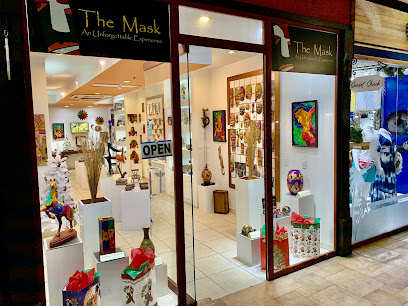
Luna Lotus Boutique
Discover stylish swimwear and beach accessories at Luna Lotus Boutique in Aruba, where fashion meets the sun and sea.
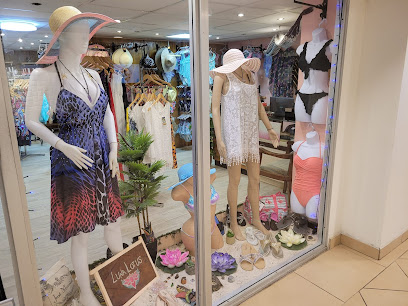
Carmen Steffens Aruba
Explore the charm of Carmen Steffens Aruba, a boutique offering exclusive fashion and accessories in the heart of Noord, Aruba.
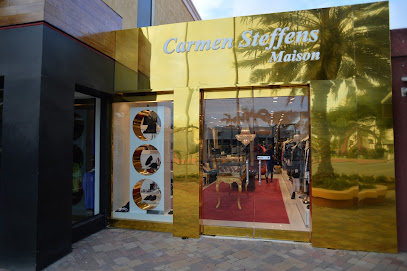
Jireh Boutique
Explore Jireh Boutique in Noord, Aruba, for a unique selection of women's clothing and accessories that reflect the island's vibrant culture.
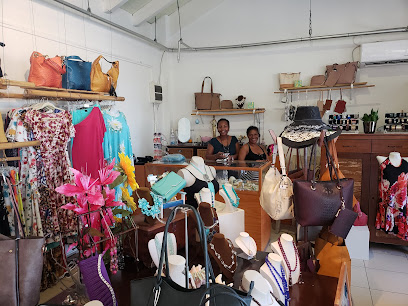
Sunset Shack
Explore the vibrant fashion of Aruba at Sunset Shack, your one-stop clothing store for beachwear, accessories, and unique island souvenirs.

Essential bars & hidden hideouts
MooMba Beach Bar & Restaurant
Discover the ultimate beachfront dining experience at MooMba Beach Bar & Restaurant, where Caribbean flavors meet stunning ocean views in Aruba.
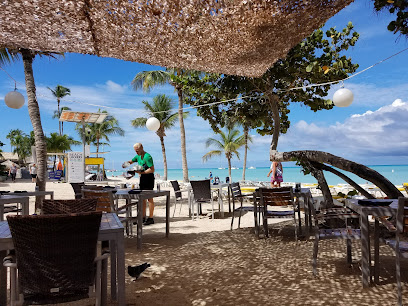
Bugaloe
Experience the vibrant atmosphere and delicious grill cuisine at Bugaloe, the ultimate beach bar in Aruba's Palm Beach.
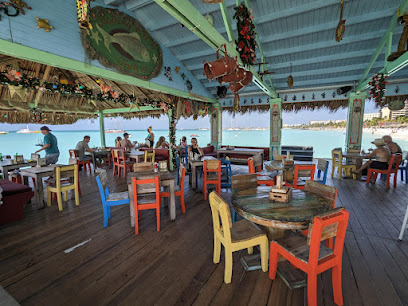
Reflexions Beach Bar & Restaurant Aruba
Experience the vibrant atmosphere and exquisite Caribbean cuisine at Reflexions Beach Bar & Restaurant, the heart of Oranjestad's nightlife.
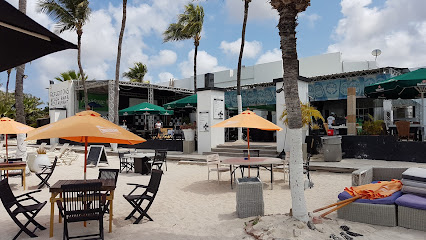
South Beach Aruba
Discover the electrifying nightlife at South Beach Aruba, where bars, dance clubs, and cocktail lounges unite for an unforgettable experience.
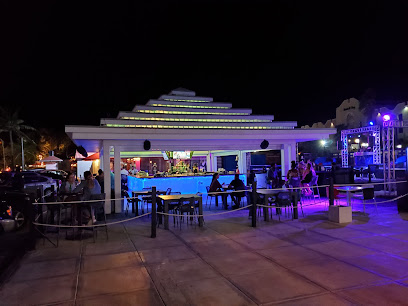
Local Store Aruba
Experience the vibrant flavors and lively atmosphere of Local Store Aruba, a top-rated bar and restaurant in Palm Beach, perfect for tourists and locals alike.
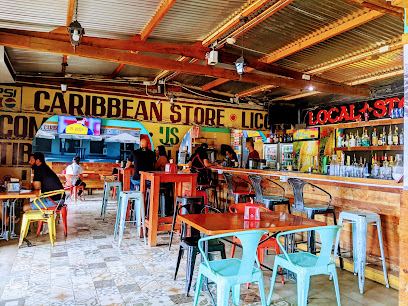
Surfside Beach Bar
Experience the essence of Aruba at Surfside Beach Bar, where every sip and bite embraces the tropical paradise of the Caribbean.
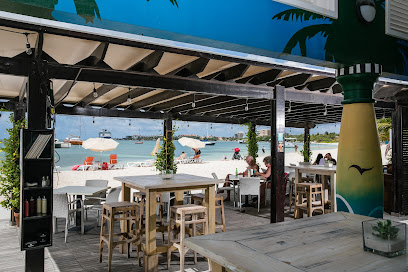
Bohemian Bar & Restaurant
Experience a culinary journey at Bohemian Bar & Restaurant, where French and Mediterranean flavors fuse in a vibrant Aruba setting.
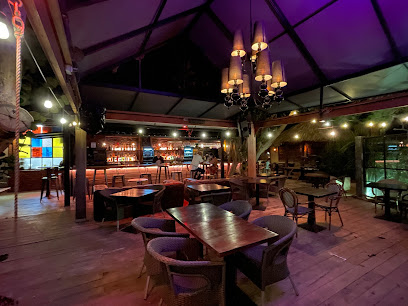
Rum Reef
Discover a culinary gem at Rum Reef, where delicious grilled dishes meet breathtaking views at Baby Beach in Aruba.
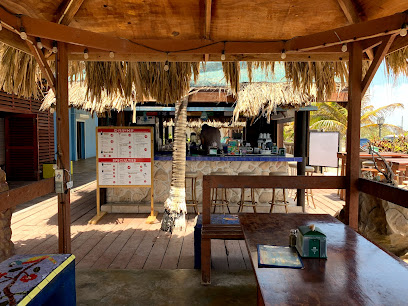
The Sopranos Piano Bar
Experience the vibrant atmosphere of The Sopranos Piano Bar in Aruba – where live music, cocktails, and premium cigars create unforgettable nights.
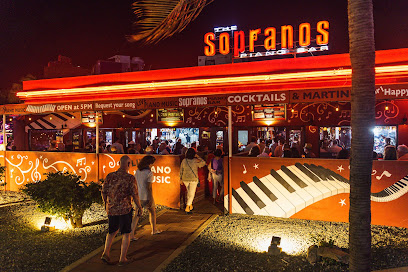
Ché Bar
Ché Bar in Noord, Aruba - your go-to spot for signature cocktails, lively atmosphere, and unforgettable island vibes.
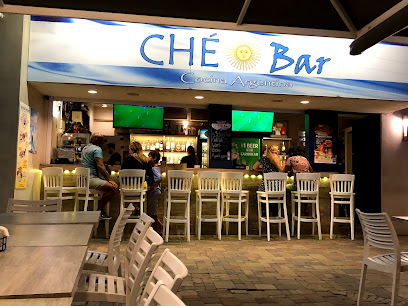
The Beach Bar
Experience the ultimate cocktail paradise at The Beach Bar in Aruba, where stunning ocean views meet expertly crafted drinks in a vibrant atmosphere.
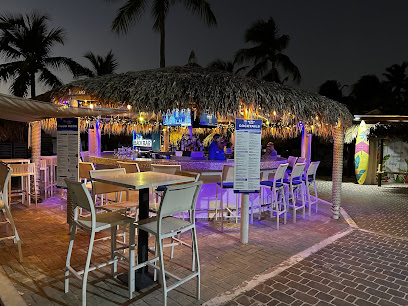
Fat Tuesday Aruba
Discover the lively spirit of Fat Tuesday Aruba, a cocktail bar serving up refreshing drinks and unforgettable nightlife experiences.
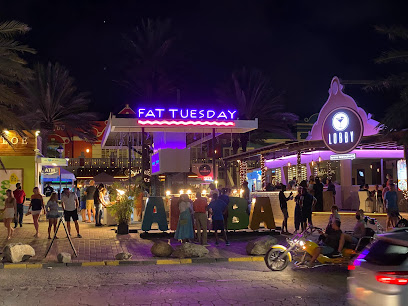
Saloon Bar Aruba
Discover the lively nightlife of Saloon Bar Aruba, where vibrant drinks and entertainment create unforgettable memories in paradise.
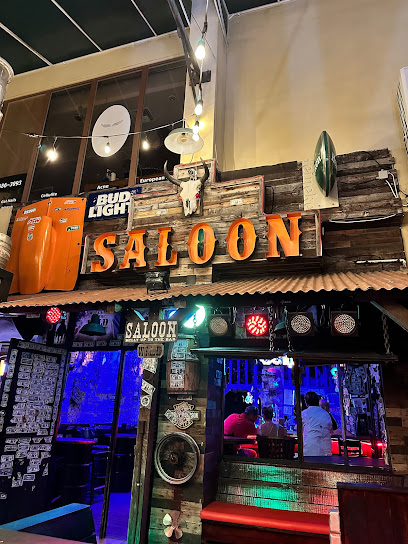
Piet's Pier Bar
Discover the laid-back charm of Piet's Pier Bar in Aruba, where tropical cocktails meet stunning sunset views along the beautiful coastline.
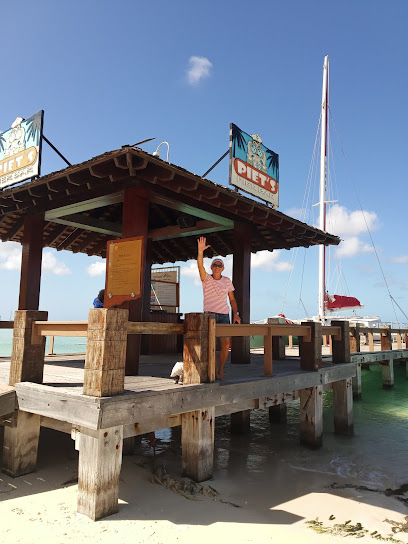
Local Phrases
-
- HelloBon dia
[Bon dee-ah] - GoodbyeAyo
[Eye-yo] - YesSi
[See] - NoNo
[No] - Please/You're welcomePor fabor
[Por fa-bor] - Thank youDanki
[Dahn-kee] - Excuse me/SorryPardon
[Par-don] - How are you?Con ta bai?
[Kohn tah by?] - Fine. And you?Bon. I bu?
[Bon. Ee boo?] - Do you speak English?Bo ta papia Ingles?
[Boh tah pah-pee-ah Ing-les?] - I don't understandMi no ta comprende
[Mee noh tah com-pren-deh]
- HelloBon dia
-
- I'd like to see the menu, pleaseMi kier mira e menu, por fabor
[Mee kee-er mee-rah e meh-noo, por fa-bor] - I don't eat meatMi no ta kome karni
[Mee noh tah koh-meh kar-nee] - Cheers!Salud!
[Sah-lood] - I would like to pay, pleaseMi kier paga, por fabor
[Mee kee-er pah-gah, por fa-bor]
- I'd like to see the menu, pleaseMi kier mira e menu, por fabor
-
- Help!Yuda!
[Yoo-dah!] - Go away!Bai for di aki!
[Bye for dee ah-kee!] - Call the Police!Yama polis!
[Yah-mah poh-lees!] - Call a doctor!Yama un dokter!
[Yah-mah oon dock-ter!] - I'm lostMi ta perdi
[Mee tah pair-dee] - I'm illMi ta malu
[Mee tah mah-loo]
- Help!Yuda!
-
- I'd like to buy...Mi kier cumpra...
[Mee kee-er koom-prah...] - I'm just lookingMi ta mira solamente
[Mee tah mee-rah soh-la-men-teh] - How much is it?Con ta costa esaki?
[Kohn tah koh-stah eh-sah-kee?] - That's too expensiveEsaki ta muchu caro
[Eh-sah-kee tah moo-choo kah-roh] - Can you lower the price?Bo por baha e prijs?
[Boh por bah-ha e prees?]
- I'd like to buy...Mi kier cumpra...
-
- What time is it?Con ora e ta?
[Kohn oh-rah eh tah?] - It's one o'clockTa un ora
[Tah oon oh-rah] - Half past (10)Mei ora y mei
[May oh-rah ee may] - MorningMadruga
[Mah-droo-gah] - AfternoonAtardi
[Ah-tar-dee] - EveningAnochi
[Ah-noh-chee] - YesterdayAnoche
[Ah-no-che] - TodayAwe
[Ah-weh] - TomorrowMañana
[Mah-nyah-nah] - 1Uno
[Oo-noh] - 2Dos
[Dohs] - 3Tres
[Tres] - 4Cuatro
[Kwah-troh] - 5Cinco
[Seen-koh] - 6Seis
[Sayss] - 7Siete
[Syeteh] - 8Ocho
[Oh-choh] - 9Nueve
[Nweh-veh] - 10Diez
[Dee-ehs]
- What time is it?Con ora e ta?
-
- Where's a/the...?Unda ta e...?
[Oon-dah tah eh...?] - What's the address?Kico e adres ta?
[Kee-koh eh ah-dress tah?] - Can you show me (on the map)?Bo por mustra mi (riba e map)?
[Boh por moos-trah mee (ree-bah eh map)?] - When's the next (bus)?Con ora e proximo (bus) ta pasa?
[Kohn oh-rah eh prok-see-moh (boos) tah pah-sah?] - A ticket (to ....)Un biahe (pa ....)
[Oon bee-ah-hey (pah ....)]
- Where's a/the...?Unda ta e...?
History of Palm Beach
-
Long before the arrival of Europeans, the indigenous Arawak people inhabited the island of Aruba. They lived in harmony with nature, fishing in the abundant Caribbean waters and cultivating crops on the fertile land. Evidence of their existence can still be seen in the form of ancient petroglyphs and cave drawings scattered throughout the island.
-
In 1499, Spanish explorer Alonso de Ojeda arrived in Aruba, marking the beginning of European colonization. The Spanish were primarily interested in exploiting the island's natural resources, particularly its gold deposits. However, they found little gold and eventually abandoned their efforts, leaving Aruba to develop in relative isolation for several centuries.
-
In 1636, the Dutch West India Company took control of Aruba, integrating it into their colonial empire. The Dutch focused on agriculture and established extensive plantations for the cultivation of aloe vera, a plant that would become synonymous with Aruba's identity. The island also became a strategic point for trade and naval operations in the Caribbean.
-
The early 20th century saw significant changes in Aruba's economic landscape. The discovery of oil in Venezuela led to the construction of an oil refinery in San Nicolas in 1924, transforming Aruba into a key player in the global oil industry. This brought an influx of workers from around the world, contributing to the island's multicultural fabric.
-
The 1950s marked the beginning of Aruba's transformation into a premier tourist destination. With its pristine beaches and crystal-clear waters, Palm Beach quickly became a focal point for development. Luxury resorts, casinos, and restaurants sprang up along the coastline, attracting visitors from around the globe and establishing tourism as the backbone of Aruba's economy.
-
Despite rapid modernization, Palm Beach and Aruba as a whole have preserved their rich cultural heritage. Traditional music, dance, and festivals, such as the vibrant Carnival, celebrate the island's diverse roots. The Bon Bini Festival, held in Oranjestad, offers a weekly showcase of local culture, including folkloric performances and artisanal crafts.
-
Today, Palm Beach is a bustling hub of activity, renowned for its luxurious accommodations and vibrant nightlife. Visitors can explore the Bubali Bird Sanctuary, shop at high-end boutiques, and indulge in water sports. Despite its modern amenities, the area remains deeply connected to its historical roots, offering a unique blend of contemporary luxury and cultural richness.
Palm Beach Essentials
-
Palm Beach is located on the northwestern coast of Aruba. The nearest airport is the Queen Beatrix International Airport (AUA), situated about 10 kilometers from Palm Beach. From the airport, you can take a taxi, which is the most convenient option and takes approximately 15 minutes to reach Palm Beach. Alternatively, you can rent a car from one of the many car rental agencies available at the airport. Public buses are also available and provide a more economical option, though they may take longer.
-
Getting around Palm Beach is easy and convenient. Taxis are readily available and can be hailed from most hotels and popular tourist spots. The Arubus is the local bus service that connects Palm Beach with other parts of the island, including Oranjestad and San Nicolas. Renting a car or a scooter is also a popular choice for those who wish to explore the island at their own pace. Many hotels offer bicycle rentals as well, which can be a fun way to explore the local area.
-
The official currency of Aruba is the Aruban Florin (AWG), but US Dollars (USD) are widely accepted. Most major credit cards are accepted at hotels, restaurants, and shops. ATMs are plentiful and can be found in most tourist areas, including Palm Beach. It is advisable to carry some cash for smaller establishments and local markets. Tipping is customary in Aruba, with 10-15% being the standard for good service.
-
Palm Beach is generally a safe destination for tourists, but it is always wise to take standard precautions. Avoid walking alone at night in poorly lit areas and always keep an eye on your belongings. While Aruba has a low crime rate, petty theft can occur. Be cautious in crowded areas and avoid displaying valuable items. There are no specific high-crime neighborhoods targeting tourists in Palm Beach, but it is always best to stay alert.
-
In case of emergency, dial 911 for police, fire, or medical assistance. Queen Beatrix Medical Center is the nearest hospital, located in Oranjestad, a short drive from Palm Beach. Pharmacies are readily available for minor health issues and over-the-counter medications. It is advisable to have travel insurance that covers medical emergencies. For consular services, the U.S. Consulate is located in Oranjestad.
-
Fashion: Do wear lightweight, breathable clothing suitable for a tropical climate. Beachwear is acceptable on the beach, but more modest attire is recommended for dining and shopping. Religion: Do respect local customs and traditions. When visiting religious sites, dress modestly and act respectfully. Public Transport: Do be considerate of others when using public transport. Don't eat or drink on buses. Greetings: Do greet people with a friendly 'Bon dia' (Good morning) or 'Bon tardi' (Good afternoon). A handshake is also common. Eating & Drinking: Do try local dishes such as Keshi Yena and pastechi. Don't refuse hospitality, as it is considered impolite.
-
To experience Palm Beach like a local, visit the weekly Bon Bini Festival in Oranjestad for local music, dance, and food. Explore the local markets for fresh produce and handmade crafts. Try the local seafood and indulge in traditional Aruban cuisine at smaller, family-run restaurants. Engage with locals, who are known for their friendliness and willingness to share stories and tips about the island. For a unique experience, take a sunset sail or explore the nearby Arikok National Park.
Trending Landmark in Palm Beach
Nearby Cities to Palm Beach
-
Things To Do in Noord
-
Things To Do in Tanki Leendert
-
Things To Do in Sero Blanco
-
Things To Do in Oranjestad
-
Things To Do in Paradera
-
Things To Do in Santa Cruz
-
Things To Do in Pos Chiquito
-
Things To Do in Savaneta
-
Things To Do in San Nicolas
-
Things To Do in Sabana Westpunt
-
Things To Do in Westpunt
-
Things To Do in Soto
-
Things To Do in Barber
-
Things To Do in Sint Michiel
-
Things To Do in Julianadorp











